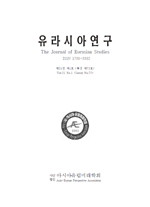- 영문명
- The Effect of EITC on the Consumption of Low-Income Households
- 발행기관
- 아시아.유럽미래학회
- 저자명
- 김태우(Tae Woo Kim) 우석진(Seokjin Woo) 안종길(Jong-Kil An) 빈기범(Ki Beom Binh)
- 간행물 정보
- 『유라시아연구』제13권 제1호, 85~109쪽, 전체 25쪽
- 주제분류
- 사회과학 > 사회과학일반
- 파일형태
- 발행일자
- 2016.03.30
5,800원
구매일시로부터 72시간 이내에 다운로드 가능합니다.
이 학술논문 정보는 (주)교보문고와 각 발행기관 사이에 저작물 이용 계약이 체결된 것으로, 교보문고를 통해 제공되고 있습니다.

국문 초록
본 연구는 국내에서 근로장려세제(EITC)가 근로빈곤층인 수혜가구의 소비에 미치는 영향을 “삼중차분(differences-in-differences-in-differences, DDD)” 기법을 통해 분석한다. 통계청의 가계동향조사 2008년과 2010년 월별 자료를 이용하여 근로장려세제 수혜가구와 비수혜가구를 구분하고 총소비, 내구재소비, 비내구재소비, 저축 그리고 부채감소를 위한 지출 등을 분석하였다. 주요 해외 연구에서 수혜가구가 내구재소비를 늘린 것과 달리, 본 연구에서는 근로장려세제 수혜가구는 소비를 늘리지 않는 것으로 나타났다. 이는 항상소득가설의 관점에서 국내 수혜가구는 소비평탄화(consumption smoothing)를 추구하며 근로장려금을 일시적인 소득으로 인식하여 소비에 영향을 미치지 못하는 것으로 해석할 수 있다. 한편, 수혜가구의 저축은 근로장려세제 수혜로 인해 증가하는 것으로 나타났다. 미래에 대한 준비가 절대적으로 부족한 수혜가구가 근로장려금을 미래 불확실성을 대비하기 위한 예비적 저축(precautionary saving)을 증가시킨 것으로 해석된다.
영문 초록
In Korea, EITC system was introduced and executed in 2009. The aim of this paper demonstrates how Earned Income Tax Credit (EITC) affects the consumption of EITC group, classified as working-poor, using Differences-in-Differences-in-Differences (DDD) technique. After pre-specifying EITC and non-EITC group using the research that provides the monthly data in 2008 and 2010 of Household Income and Expenditure Survey by National Statistical Office, we analyze the effect of EITC on the actual expenditures on total consumption, durable goods consumption, non-durable goods consumption, savings and reducing on debts or liability.
It turns out whereas the EITC group booted their consumption on durable goods in the overseas research, the consumption of EITC group has not increased in our study. The domestic EITC group can be regarded as households pursuing consumption smoothing. We can guess that this group would regard a subsidy due to EITC as transitory incomes so it does not increase consumption in accordance with permanent income hypothesis. Considering the increase in savings, the EITC group who gets benefits from the program seems to prefer to save up instead. This result represents that the uncertainty of the future make them consider and choose to save up instead of the current consumption. This is considered this way due to the fact that the EITC group relatively comparing to non-EITC group would not be well-prepared for their future finance issues that might occur in the future in an effort of them to reduce the financial insecurity.
목차
Ⅰ. 서 론
Ⅱ. 근로장려세제 제도와 현황
Ⅲ. 선행연구
Ⅳ. 분석방법
Ⅴ. 자료와 실증분석 결과
Ⅵ. 결 론
참고문헌
키워드
해당간행물 수록 논문
- 유라시아 주요국가의 경제현황, 경제역량과 잠재적 위험요인에 대한 분석
- 몽골 주식시장의 Top-20 지수를 통한 시장 효율성 검증
- 사회적기업의 인적자원관리시스템 유형화 사례 연구
- 위험요인을 고려한 농지연금 월지급금의 적정성에 관한 연구
- 다국적 기업의 조직문화·직무특성·조직몰입의 관계에 관한 연구
- 유럽의 사회적 경제 고용 현황과 지원 인프라
- 대한민국 전통문화산업 관련 법제도 고찰
- 감사인의 조세컨설팅 보수가 기업의 회계투명성에 미치는 영향
- 데이터마이닝을 활용한 인구집단 구성과 경제적 불평등 평가
- Serbian Accession to the EU and CSDP Engagement: Crisis Management in Reworking
- 개방경제하에서 거시경제변수가 경제성장에 미치는 효과 분석
- 우리나라 영업사원의 효과적인 영업행위와 관계지향적 영업행위에 관한 정성적 연구: 아주캐피탈의 자동차금융 영업사원들의 사례를 중심으로
- 근로장려세제가 수혜가구의 소비에 미치는 영향
- Mean Reversion or Momentum Trades? The VKOSPI Case Study
- 자산재평가 정보가 재무분석가의 이익예측오차에 미치는 영향
- 미술관 소셜네트워크서비스 게시물의 감성적 요소가 정보이용자의 호응에 미치는 영향
참고문헌
관련논문
사회과학 > 사회과학일반분야 BEST
- AI와 디지털 문화 산업의 결합에서 저작권 및 윤리적 규범 준수의 필요성 연구
- 인공지능(AI)과 윤리
- 종합병원 간호사의 환자안전문화인식과 조직의사소통만족이 안전간호활동에 미치는 영향
사회과학 > 사회과학일반분야 NEW
- 일본의 노인 삶의 보람 취로 현황 및 과제: 삶의 보람 취로에서 삶의 보람 활동으로
- 잠재프로파일 분석을 활용한 저소득 청년이 인지하는 고용장벽의 유형화
- 중장년 약물중독 회복당사자의 외로움 영향요인 연구
최근 이용한 논문
교보eBook 첫 방문을 환영 합니다!

신규가입 혜택 지급이 완료 되었습니다.
바로 사용 가능한 교보e캐시 1,000원 (유효기간 7일)
지금 바로 교보eBook의 다양한 콘텐츠를 이용해 보세요!



